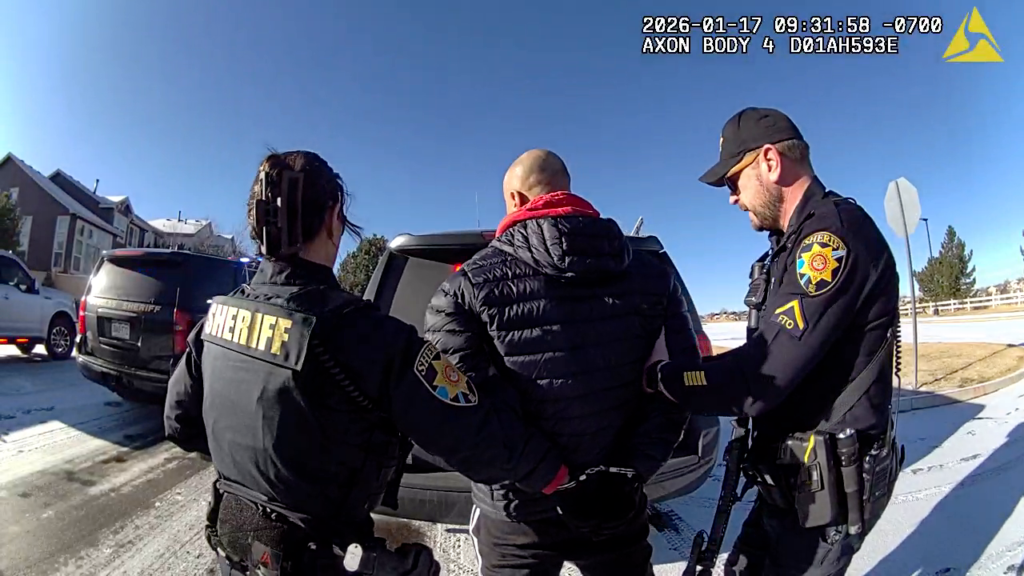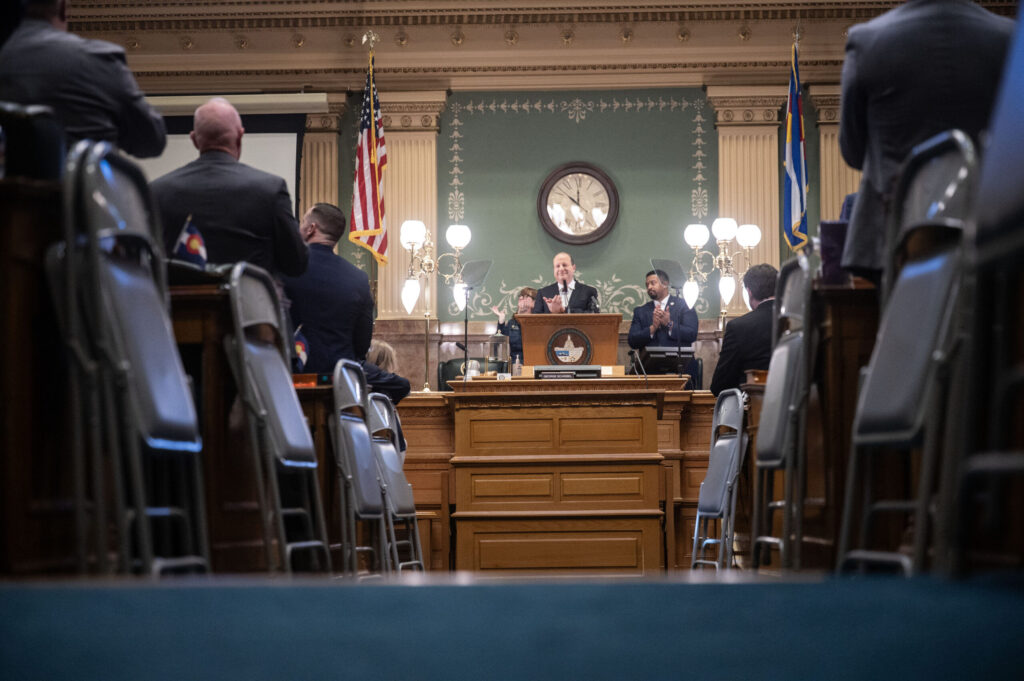Fenberg on introducing proposed gay conversion therapy ban to GOP Senate
It’s a different state Senate this year. It’s more cordial. It’s less political. Leadership is respected and respectful. So maybe this is the year, said freshman state Sen. Steve Fenberg, a Boulder Democrat. Fenberg is the upper chamber sponsor of a bill that would ban so-called gay conversion therapy in the state, a bill that has been passed in the Democratic-controlled House and killed in the Republican-controlled Senate two years in a row.
“Maybe I’m naively hopeful,” said Fenberg. “It’s my first year here, I know, but clearly there has been progress [on gay rights] in the last few years, and I think that this is a really important issue for the times we’re living in – really important that the state pass protections for LGBT Coloradans, and particularly LGBT children.”
Fenberg was speaking with The Statesman on Tuesday after the bill, HB-1156, passed out of the House with the support of all 37 of the Democrats in the chamber and one Republican. The bill would ban anti-gay conversion therapy for minors as practiced by licensed therapists. The House sponsor is Rep. Paul Rosenthal, a Denver Democrat and co-founder of the legislative LGBT caucus. Rosenthal knows the tough climb this year as in years past was always going to be in the Senate. It’s on Fenberg now.
“I know a lot of people are contacting President Grantham – a lot of Coloradans,” said Fenberg. “The call to action among the groups in support of the bill has been to ask Grantham to just let the bill reach the floor for debate. I know that’s tough – I know he’ll feel pressure from his own conservative activist base not to do that.
“But I know Grantham to be a gracious person and a straight shooter,” he added. “In fact, I don’t really know what it was like last year, but I have only known this year’s GOP leadership in the Senate to be honest brokers.”
Conversion therapy, which aims to turn gay people straight, has been controversial for years. The track record of the therapy is mixed at best, with many adolescent patients reporting the therapy effected no change in their sexual orientation but did throw them into bouts of anxiety and despondency. Studies cited by opponents of the treatment have recorded upticks in suicide among patients.
Supporters of the therapy include “ex-homosexuals” who have gone through the therapy and say it works, partly for helping them see sexual orientation as a choice.
Opponents of Rosenthal’s bill have described it as government meddling in family and spiritual lives.
“Look, your home life, your church life, that’s very different,” said Fenberg. “This bill isn’t about that. It’s about licensed therapists using the force of their profession and the authority of their station.
“There’s no doubt that this therapy has resulted in depression,” he said. “We’re talking about young people entertaining suicidal thoughts, attempting suicide, committing suicide. Whatever your views, I think everyone can agree that that is something to battle against.”
Fenberg said he’s spoken to some of his Republican colleagues about the bill and some of them have been sympathetic. Mainly, though, he’s relying on constituent power to get the bill to the floor.
“People have incredible stories. I just think the emotion on this topic is on the side of the bill,” he said. “So I think it’s about making sure senators hear from their constituents about how the bill would impact people’s lives. The best leverage is going to be getting the message from the constituents up the chain to the lawmakers.”











